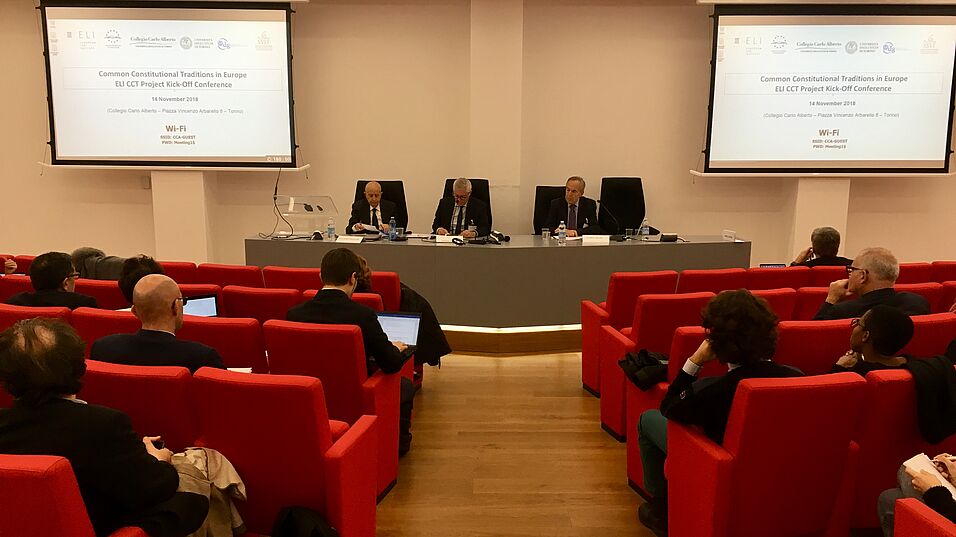Two project team meetings (in Turin (Italy) and London (UK)) earlier this year and a panel session at the ELI Annual Conference in Riga (Latvia) in September gave the Team much food for thought. The Conference thus marked an occasion for the team to present the developments achieved since the project’s adoption.
The Conference opened with welcome words by Mario Comba (University of Turin (Italy), one of the project’s Reporters). Tomasz Dudek (the Project’s Officer at the ELI Secretariat), proceeded to read out a speech on behalf of ELI President, Christiane Wendehorst. Among other things, Wendehorst observed that the output of the study is due in 2021 ‘almost exactly half a century after the Court of Justice of the European Union used the term “Constitutional Traditions Common to the Member States” for the first time.’
Among other speakers, Sir Jeffrey Jowell (University College London (UK), also one of the project’s Reporters) introduced the project’s theme and methodology, while Former ELI President Sir Francis Jacobs (Kings College of London (UK), a member of the Project team) discussed the crucial issue of terminology, namely whether one should employ the notion of ‘constitutional traditions’ or rather of ‘fundamental constitutional principles’. Other speakers provided different angles on the topic including Giacinto della Cananea (Tor Vergata University, Italy) who presented a project he coordinates on the Common Core of European Administrative Law and Giovanni Pitruzzella (Advocate General at the Court of Justice of the European Union) who undertook to discuss whether common constitutional traditions exist in Europe in the field of market regulation and the role of national independent administrative authorities and of the Court of Justice of the European Union in that regard is.
The above were followed by five pilot country reports from experts from Poland, Italy, Germany, the UK and France. The reports will be used to further develop a questionnaire which will facilitate the collection of data from other European countries. The team aim to use this in turn to elaborate upon the ELI Instrument, which is expected in 2021.
You can read more about this ELI project here.
The ELI would like to thank Instituto Universitario di Studi Europei and Collegio Carlo Alberto for organising this Conference.

